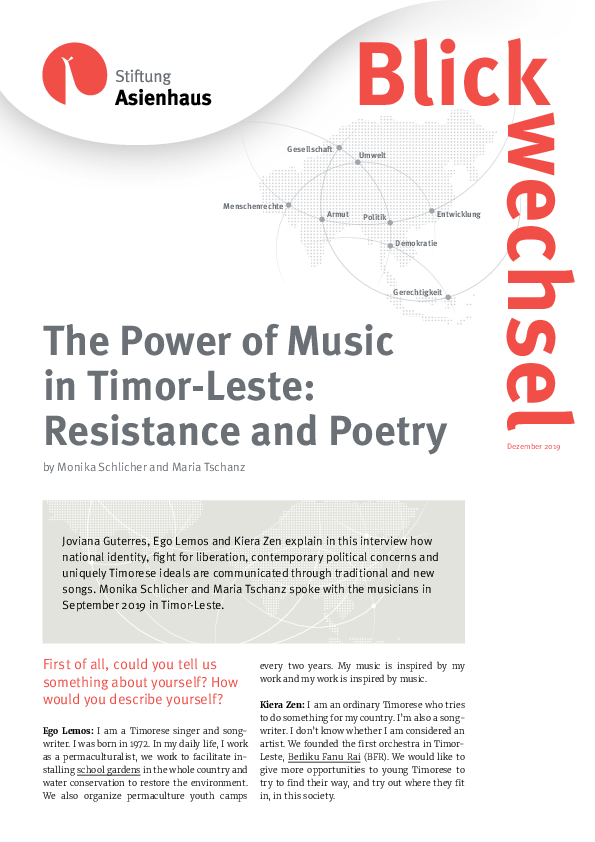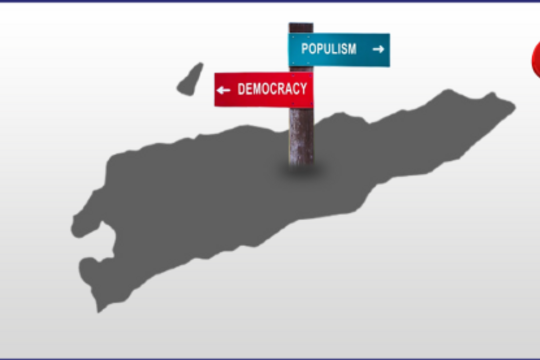Ego Lemos: During the resistance, not many people were aware that music and culture are powerful and influential. We had a diplomatic resistance, we had a clandestine resistance, we had an armed resistance. But we forgot that cultural resistance plays a very important role to keep the culture of the East Timorese alive. The spirit of music evoked their spirit and their strength to fight for independence.

Kiera Zen: As you know, the fight against Indonesia was very hard. We had to find ways out, to resist, yet not only to resist but also to gain more influence; to convince not only more East Timorese, but also more Indonesians, more outsiders. In doing that, we had to try with as many ways as possible. Music also served this purpose. Even during the resistance in the bush, the freedom fighters were using music as a healing source and to strengthen the revolutionary spirit. And still, until now, it is acknowledged that music has contributed a lot to the movement.
Joviana Guterres: I firmly believe that the politically motivated music scene will go on, there are a great many young people who want to make music and form bands. Music, to my mind, will remain an instrument to advocate human rights and other political and social issues, like social justice, discrimination or gender equality.










